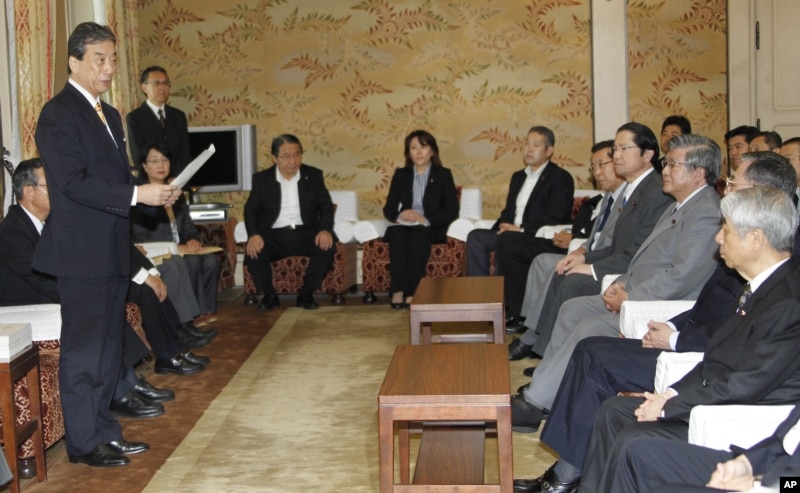Yesterday, news broke that an independent investigation by the Japanese parliament has concluded that the March 2011 accident at the Fukushima Daiichi nuclear power plant was a "man-made" failure that could be laid at the feet of both Tokyo Electric Power Company and the government. According to Tokyo University professor emeritus and Committee Chair Kiyoshi Kurokawa, the Fukushima accident "cannot be regarded as a natural disaster ... It could and should have been foreseen and prevented. And its effects could have been mitigated by a more effective human response."
The report also points out that elements unique to Japanese culture and industry also played a role in Japan's response to the events at Fukushima:
To read the entire report, click here.
Fukushima Nuclear Accident Independent Investigation Commission Chairman Kiyoshi Kurokawa, addresses Japanese legislators yesterday while presenting his committee's report. Photo courtesy of Voice of America.
The report also points out that elements unique to Japanese culture and industry also played a role in Japan's response to the events at Fukushima:
“This was a disaster ‘Made in Japan, ”Kurokawa said in the report’s introduction. “Its fundamental causes are to be found in the ingrained conventions of Japanese culture: our reflexive obedience; our reluctance to question authority; our devotion to ‘sticking with the program,’ our groupism, and our insularity.”But if the accident at Fukushima was unique to Japan, what differentiates their culture and nuclear industry from others around the world, especially here in the U.S.? Just prior to the Institute of Nuclear Power Operations’ release of a detailed timeline of the events at Fukushima, I asked NEI's Chief Nuclear Officer, Tony Pietrangelo, to clarify what sets the U.S. nuclear energy industry apart from Japan:
To read the entire report, click here.
Fukushima Nuclear Accident Independent Investigation Commission Chairman Kiyoshi Kurokawa, addresses Japanese legislators yesterday while presenting his committee's report. Photo courtesy of Voice of America.

Comments
James Greenidge
Queens NY
do you have any info or links on the dam failure? I googled for it but all I find for hits are blog comments like yours above. I'm not saying it didnt happen, but where's the info? I'd like to see anything, even if it is in Japanese. Thanks.
http://apu.blog.so-net.ne.jp/2011-08-23
Photos of the intact Okura dam, taken 8/23/2011. Apparently the news of it's demise are premature.
OTOH, Fujinuma reservoir did collapse, killing 7.
http://www.nilim.go.jp/lab/bbg/saigai/h23tohoku/110314sabo.pdf